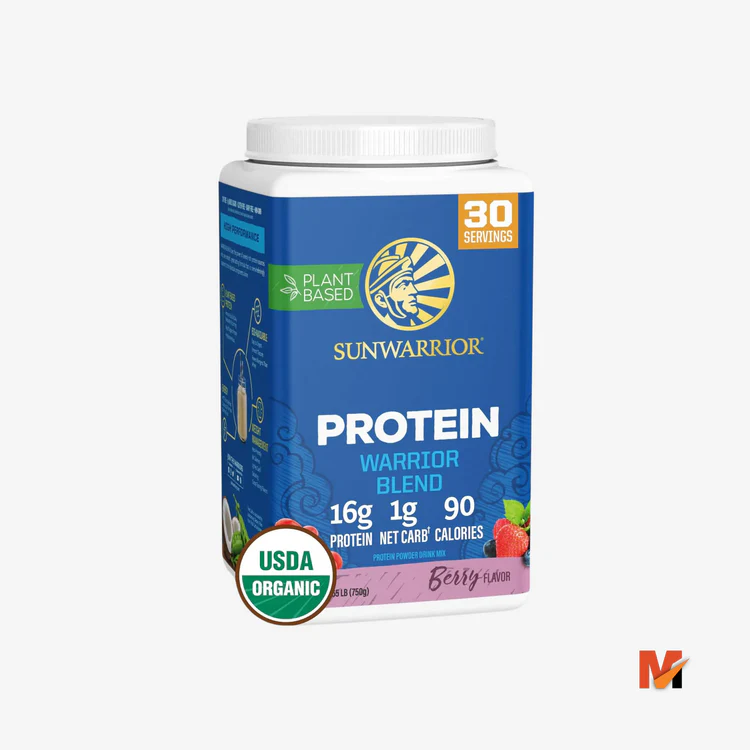Choosing the right protein powder can significantly impact your fitness journey and overall health. With a variety of options available on the market, such as ForAll protein powder, selecting the best one for your nutritional needs can seem overwhelming. Protein powders are popular supplements that can support muscle growth, aid in recovery, and enhance your daily protein intake. This article will guide you through the essential factors to consider when choosing a protein powder, helping you make an informed decision that aligns with your health and fitness goals.
Understanding Your Protein Needs
Before diving into the world of protein powders, it’s important to understand your individual protein needs. Protein is a crucial macronutrient that supports muscle repair, immune function, and overall bodily health. The amount of protein you need can vary based on factors such as your age, weight, activity level, and fitness goals.
For most adults, a general recommendation is to consume around 0.8 grams of protein per kilogram of body weight. However, athletes and individuals engaged in intense physical training might require more—up to 1.2 to 2.0 grams per kilogram. Understanding your specific protein requirements will help you choose a protein powder that meets your dietary needs.
Types of Protein Powders
Protein powders come in several different forms, each with unique characteristics and benefits. Here are some of the most common types:
1. Whey Protein
Whey protein is one of the most popular and widely used protein powders. It is a complete protein that contains all nine essential amino acids, making it highly effective for muscle growth and recovery. Whey protein is quickly absorbed by the body, making it an excellent post-workout supplement. It is available in various forms, including whey protein isolate, concentrate, and hydrolysate, each with different protein concentrations and processing levels.
2. Casein Protein
Casein protein is another dairy-derived protein, but it is absorbed more slowly than whey. This slow digestion rate provides a steady release of amino acids, making it a suitable option for a nighttime protein source. Casein can help with muscle repair and reduce muscle breakdown during periods of fasting.
3. Plant-Based Proteins
Plant-based protein powders are ideal for individuals with dairy allergies, lactose intolerance, or those following a vegan diet. Common sources of plant-based protein include pea, hemp, soy, and rice. These protein powders can be a good source of essential amino acids, though some may need to be combined to provide a complete amino acid profile.
4. Egg White Protein
Egg white protein is derived from the whites of eggs and is a high-quality, complete protein. It is low in fat and carbohydrates and is easily digestible. Egg white protein is a good alternative for those who are allergic to dairy or following a low-carb diet.
Factors to Consider When Choosing a Protein Powder
When selecting a protein powder, consider the following factors to ensure it aligns with your nutritional needs and preferences:
1. Protein Content
Check the protein content per serving. Most protein powders provide between 15 to 30 grams of protein per scoop. Choose a powder that offers a sufficient amount of protein to meet your daily needs, especially if you are using it as a supplement to your diet.
2. Ingredient Quality
Examine the ingredient list for quality and purity. Opt for protein powders with minimal additives, artificial sweeteners, and fillers. Look for products with high-quality protein sources and additional nutrients like vitamins and minerals that support overall health.
3. Digestibility and Tolerance
Consider how well you tolerate different types of protein powders. Some individuals may experience digestive discomfort with certain types of protein, such as whey or casein. If you have lactose intolerance or a dairy allergy, a plant-based or egg white protein may be a better option.
4. Flavor and Texture
Protein powders come in a variety of flavors, such as chocolate, vanilla, and unflavored. Choose a flavor that you enjoy and will be more likely to incorporate into your routine. Additionally, consider the texture—some protein powders blend smoothly, while others may be gritty or clumpy.
5. Cost and Value
Evaluate the cost per serving and overall value of the protein powder. While higher-quality protein powders may be more expensive, they often provide better results and fewer additives. Compare different products to find a balance between quality and affordability.
How to Incorporate Protein Powder into Your Diet
Integrating protein powder into your daily routine can be simple and versatile. Here are some ideas:
- Smoothies and Shakes: Blend protein powder with fruits, vegetables, and a liquid base for a nutritious smoothie or shake.
- Baking: Add protein powder to baked goods like muffins, pancakes, or energy bars to increase their protein content.
- Meal Replacement: Use protein powder as a meal replacement for a quick and convenient option when you’re on the go.
Conclusion
Finding the best protein powder for your nutritional needs involves understanding your protein requirements, exploring different types of protein powders, and considering factors like ingredient quality, digestibility, and flavor. By carefully evaluating these aspects, you can choose a protein powder that supports your health and fitness goals effectively. Whether you’re looking to build muscle, aid in recovery, or simply increase your protein intake, selecting the right protein supplement can enhance your overall wellness and contribute to a healthier lifestyle.







